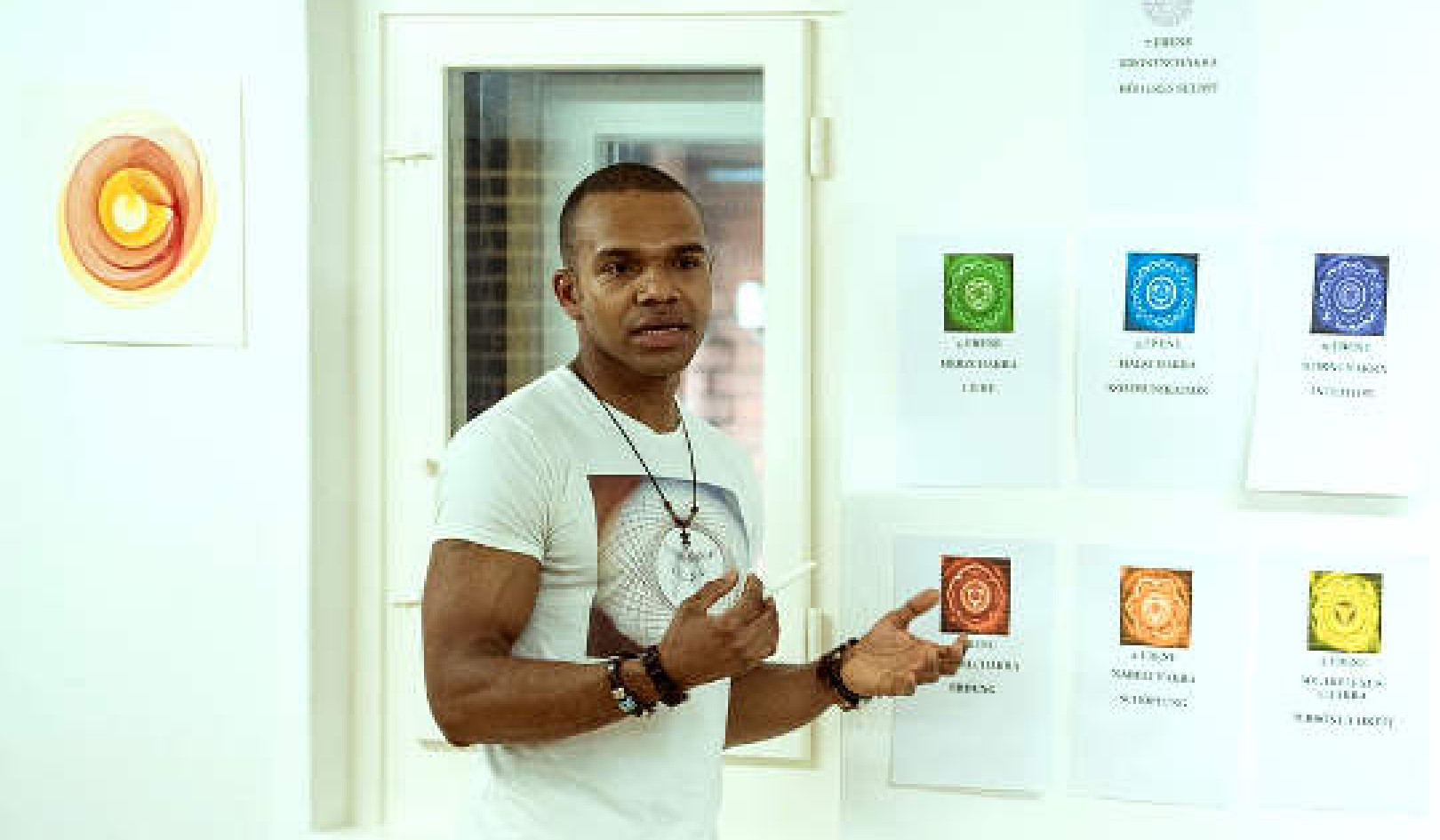
When we believe whatever our story-telling brain fabricates, we are pushing our own buttons! As we listen to this sort of mind chatter, our survival alarm quickly escalates to higher levels of activation. Then our upset reactions seem completely justified!
Even after the reactive incident, we can keep escalating our own upset as our brain replays these stories again and again. With time and repeated unresolved upsets, people become even more convinced that their stories are true. Partners begin to see each other through the filter of mistaken generalizations.
You probably hear worst-case stories in your head when you get triggered. Next time this happens, notice your self-talk. Is there a common theme — like how insensitive your partner is, or how you always come last? Can you see how believing such stories gets you even more upset?
Wanting to Establish Cause-and-Effect Explanations
The meaning-making part of your brain seeks to establish cause-and-effect links between things. In many situations, this helps you function well. It’s good to have a predictive model for how things work and how to stay safe in the physical world. You learn to look both ways before crossing the street, predict how billiard balls will rebound, and think four moves ahead in chess. So the analytic brain is quite useful for many things in the world, especially where simple rules apply.
However, for matters as complex as human relationships, the analytic ability of your brain is often not quite up to the task, especially when your primitive alarm starts to ring. That voice in your head that explains what is going on can easily get it wrong. You know this well, since you have probably been misunderstood by others many times.
You at least know that other people’s brains get it wrong. But you’ve got one of those storytelling brains, too! And not only is it severely limited when it comes to understanding relationships, it may be causing a lot of damage to your love life.
When the storytelling brain processes information, it will over simplify, and it will arbitrarily connect the dots based on past experience and past unfinished business — not on present reality!
Knowing What We Don't Know
In the 1940s, before effective pharmaceutical drugs were discovered, brain surgeons found they could cure severe epilepsy with an operation that separated the left and right sides of the brain. In this radical surgical procedure, doctors severed the corpus cal losum, a major channel of connection between the brain’s right and left hemispheres. This prevented the interhemispheric thunderstorm that causes seizures, and thus saved patients’ lives. As a result, though, most information no longer flowed between the two halves of the brain.
Neuroscientist Michael Gazzaniga realized that these patients provided a rare opportunity to look at how each side of the brain functioned in relative isolation. (Michael S. Gazzaniga, "Two Brains: My Life in Science," in Inside Psychology, ed. Patrick Rabbitt (New York: Oxford University Press, 2009), 101-16.) In the 1960s, he started over four decades of research on patients who had had this operation. In one study, he projected a silly picture that was only visible to the right visual field of a patient, who would then start laughing. Then he asked the patient, “Why are you laughing?”
The patient did not know, but the storytelling brain (in the brain’s left hemisphere) would still fabricate an answer. The patient would say something like, “This is a funny projection machine,” or “You guys are running a silly experiment here.”
In another study, Gazzaniga projected a frightening movie that was only seen by the patient’s right brain. The patient reported feeling nervous. Asked why, the patient quickly claimed that Gazzaniga’s research assistant looked a bit creepy. Even though the patient’s upset feelings were triggered internally in the right brain, the left brain asserted that the cause was a random person in the room.
Through years of such inventive studies, Gazzaniga conclusively demonstrated how the meaning-making part of the brain ad-libs and just makes things up. It makes up stories that sound like reasonable explanations for what we are doing and feeling, or what the other person’s behavior means. And we believe these stories as if they were facts.
In a similar way, when our alarm gets triggered, and we do not realize what is truly setting it off, our brain makes up a story: “My partner doesn’t care about my feelings,” or “I can never please her.” It is as if a frightening movie starts playing in our right brain while we talk with our intimate partner.
We start feeling and even acting upset, but we don’t recognize the cause. When our partner asks, “Why are you so upset?” we blurt out our story: “Because you never listen to me!” or “Because you always have to be right!”
Stories That Keep Us Triggered
What stories come up in your head when you get upset? The following list shows some of the more common stories that come up when there is distress in our love lives. Check off any stories that your mind has fabricated when you were triggered by a partner. Change the pronouns “he” and “she” to suit your situation.
This exercise is in the online workbook’s “Reactive Stories” section (available at www.fiveminuterelationshiprepair.com).
- “I am all alone.”
- “He shuts me out.”
- “She is so distant.”
- “I am way down on the list.”
- “I always come last.”
- “He just doesn’t seem to care.”
- “My feelings don’t matter.”
- “We are never close anymore.”
- “She is not that into me.”
- “I am just not sure I matter.”
- “It’s like he doesn’t see me.”
- “I don’t know how to reach her.”
- “If I didn’t push, we’d never be close."
- “He doesn’t really need me at all."
- “Nothing I do is ever enough."
- “She doesn’t appreciate me."
- “I can never get it right, so I give up."
- “I must be flawed somehow."
- “I feel like a failure as a mate."
- “It just all seems so hopeless."
- “I try to keep everything calm."
- “I try not to rock the boat."
- “I go into my shell where it’s safe."
- “I am just not as needy."
- “She just gets overemotional."
- “I can handle things on my own."
- “I don’t know what he is talking about. We’re fine."
- “I try to fix things, to solve the problem."
Why Are Our Stories Worst-Case Scenarios?
We formed our basic beliefs and expectations about relationships with our first significant others — our parents and early caregivers. How we were treated by them, and how we saw them treat one another, led to the expectations and interpretations our minds continue to feed us today. This programming continued with siblings, friends, peers at school, and any other meaningful relationships where we sought to get our needs met.
If we experienced emotionally painful or frustrating events, this installed certain fear buttons in our brains. Here are some of the common fear buttons that show up in intimate partnerships. These include the fear of being...
abandoned, rejected, left, all alone, unneeded, insignificant, invisible, ignored, unimportant, flawed, blamed, not good enough, inadequate, a failure, unlovable, controlled, trapped, overwhelmed, suffocated, out of control, helpless, weak.
Which of these have you ever felt in a significant love relationship? Such fears can get triggered by any event that seems similar to a past incident where our significant needs were frustrated.
The Early Messages Imprint
Donna’s fear button of being not good enough was connected to the way her father used to lecture her about how she should act in school, how she needed to perform better in some class, or how she could improve herself. As a child, Donna got the message that she was not lovable.
A core need for being accepted and valued seemed to be threatened when her father launched into his lecturing tone. Hearing Eric use a similar voice tone triggered this fear button, and the story came up in her mind that “Eric is talking down to me like I’m stupid!”
Donna had not yet learned that her storytelling brain was leading her astray. In the same way, Eric’s inner storyteller misunderstood Donna. He grew up with parents who argued constantly. He felt helpless and scared when he heard their loud voices, and he usually ran and hid in his room. So as an adult, he would easily fall prey to the story that he was powerless when someone got angry or raised their voice around him.
Donna and Eric are like the patients in the experiment, where they had no real idea why they felt afraid or upset. But their minds filled in the blanks with stories. So if you find yourself getting upset, it may serve you and your relationship to pause and question any story about “why” that comes into your mind.
When you’re upset, get in the habit of asking yourself:
“What if I’m inaccurate in how I see this?”
“What if my story is simply what I fear to be true?”
Copyright © 2015 by Susan Campbell and John Grey.
Reprinted with permission from New World Library.
www.NewWorldLibrary.com
Article Source:
 Five-Minute Relationship Repair: Quickly Heal Upsets, Deepen Intimacy, and Use Differences to Strengthen Love
Five-Minute Relationship Repair: Quickly Heal Upsets, Deepen Intimacy, and Use Differences to Strengthen Love
by Susan Campbell and John Grey.
Click here for more info and/or to order this book.
About the Authors
 Susan Campbell, PhD, trains coaches and therapists throughout the United States and Europe to integrate the tools in Five-Minute Relationship Repair into their professional practices. In her own practice, she works with singles, couples, and work teams to help them communicate respectfully and responsibly. The author of Getting Real, Saying What’s Real, and other books, she lives in Sonoma County, California. www.susancampbell.com
Susan Campbell, PhD, trains coaches and therapists throughout the United States and Europe to integrate the tools in Five-Minute Relationship Repair into their professional practices. In her own practice, she works with singles, couples, and work teams to help them communicate respectfully and responsibly. The author of Getting Real, Saying What’s Real, and other books, she lives in Sonoma County, California. www.susancampbell.com
 John Grey, PhD, is a relationship coach specializing in intensive couples retreats. He also trains couples therapists in a state-of-the-art approach that integrates the latest neuro-science and attachment research. He has taught communication workshops at Esalen Institute, University of California at Berkeley, Stanford University, and Scripps Institute. He lives in Sonoma County, California. www.soulmateoracle.com
John Grey, PhD, is a relationship coach specializing in intensive couples retreats. He also trains couples therapists in a state-of-the-art approach that integrates the latest neuro-science and attachment research. He has taught communication workshops at Esalen Institute, University of California at Berkeley, Stanford University, and Scripps Institute. He lives in Sonoma County, California. www.soulmateoracle.com
Watch a video/interview with the
About The Author
Quickly Heal Upsets with FIVE-MINUTE RELATIONSHIP REPAIR


























